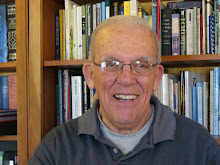WASHINGTON (CNS) -- The concept and practice of religious freedom is "one of America's greatest qualities" but it cannot be appreciated or passed along to other nations without an understanding of its roots in Christian thought, Archbishop Charles J. Chaput of Denver told a symposium at Georgetown University March 1.
"It is impossible to talk honestly about the American model of religious freedom without acknowledging that it is, to a significant degree, the product of Christian-influenced thought," the archbishop said in his keynote address to a daylong symposium on "Religion in American Politics and Society: A Model for Other Countries?"
Archbishop Chaput emphasized that he was not saying America is a "Christian nation" or that everything about our nation's Protestant heritage is "uniformly good." He cited "radical individualism, revivalist politics, a Calvinist hunger for material success as proof of salvation" and "an ugly nativist and anti-Catholic streak" as among the "less happy" effects of that heritage.
"None of these sins, however -- and yes, some of our nation's sins have led to very bitter suffering both here and abroad -- takes away from the genius of the American model," he said. "This model has given us a free, open and nonsectarian society marked by an astonishing variety of cultural and religious expressions."
But that does not mean the American notion of religious liberty can be dropped into another culture that does not share Christian roots, as evidenced by the "bitter experience in Iraq," the archbishop said.
"One of the gravest mistakes of American policy in Iraq was to overestimate the appeal of Washington-style secularity, and to underestimate the power of religious faith in shaping culture and politics," he added.
The "democracy movements now sweeping the Middle East and North Africa" demonstrate, however, that "the values enshrined in the American model touch the human heart universally," the archbishop said.
"The desires for freedom and human dignity ... are not culturally conditioned, or the result of imposed American or Western ideals," he added. "They're inherent in all of us."
He called for "an honest discussion of the relationship between Islam and the assumptions of the modern democratic state."
"In diplomacy and in interreligious dialogue we need to encourage an Islamic public theology that is both faithful to Muslim traditions and also open to liberal norms," the archbishop said. "Shariah law is not a solution. Christians living under Shariah uniformly experience it as offensive, discriminatory and a grave violation of their human dignity."
Archbishop Chaput, who served on the U.S. Commission on International Religious Freedom from 2003 to 2006 under President George W. Bush, criticized "the current administration's ambivalence toward the widespread violations of religious liberty across the globe," as well as "the inadequacy or disinterest of many of our news media in reporting on religious freedom issues."
But he acknowledged that those are matched by "the indifference of many ordinary American citizens."
"In government, media, academia, in the business community and in the wider culture, many of our leaders no longer seem to regard religious faith as a healthy or a positive social factor," he said.
But free societies need "a healthy distinction between the sacred and the secular, between religious law and civil law," he added.
"Christians, and especially Catholics, have learned the hard way that the marriage of church and state rarely works," Archbishop Chaput said. "For one thing, religion usually ends up the loser, an ornament or house chaplain for Caesar. For another, all theocracies are utopian -- and every utopia ends up persecuting or murdering the dissenters who can't or won't pay allegiance to its claims of universal bliss."
Quoting James Madison, who said America was born as "an asylum to the persecuted and oppressed of every nation and religion," Archbishop Chaput concluded his talk by saying, "Right now in America, we're not acting like we revere that legacy, or want to share it, or even really understand it.
"And I think we may awake one day to see that as a tragedy for ourselves, and too many others to count," he added.
The symposium at which the archbishop spoke, sponsored by Georgetown's Berkley Center for Religion, Peace and World Affairs and Edmund A. Walsh School of Foreign Service, also featured three separate panel discussions with Jewish, Muslim and Christian scholars and leaders.
Imam Feisal Abdul Rauf, a key proponent of the proposed Islamic community center near ground zero in New York, said separation of church and state "does not mean a firewall" between the two, but requires a "structured formula" similar to the system of checks and balances among the legislative, executive and judicial branches of the U.S. government.
The imam founded and chairs the Cordoba Initiative, described as "a multinational, multifaith organization dedicated to improving understanding and building trust among people of all cultures and faith traditions."
"The ethics and principles that come from our faiths do inform and must inform our political life," he told the Georgetown audience. "The coercive powers of the state should not be used to oppress one religion."
END
--------------------------------------------------------------------------------Copyright (c) 2011 Catholic News Service/USCCB. All rights reserved.This material may not be published, broadcast, rewritten or otherwise distributed.CNS · 3211 Fourth St NE · Washington DC 20017 · 202.541.3250
Wednesday, March 2, 2011
Subscribe to:
Post Comments (Atom)

No comments:
Post a Comment